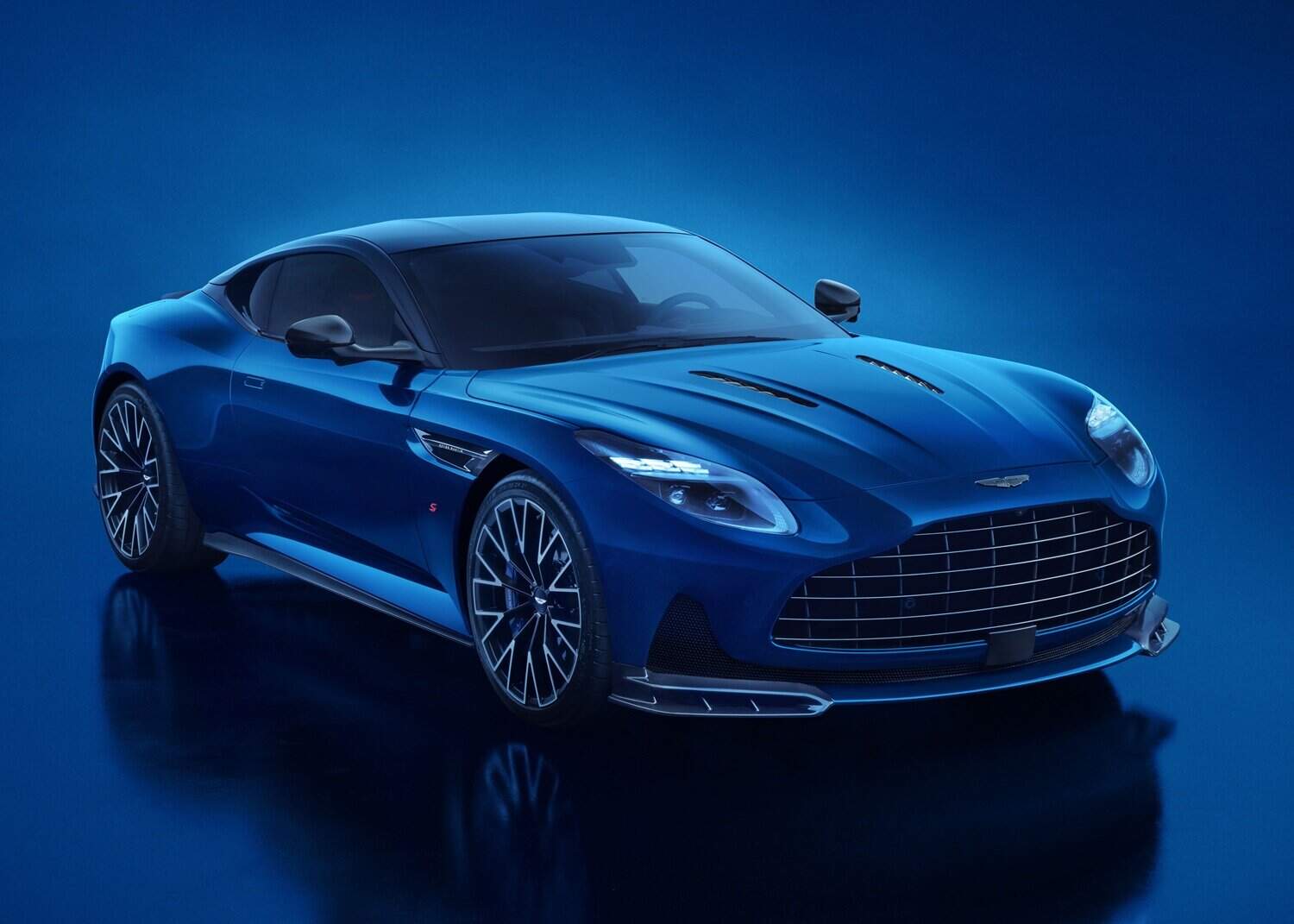
Just over two years after making its world debut as the replacement for the DB11, Aston Martin has removed the wraps from the more powerful, more sorted S version of the DB12.
Replacing the standard model fully, the third S model to be introduced after the Vanquish S and DBX S over the last 12 months also becomes the most powerful non-flagship Aston ever made.
Revealed in coupe form, but with a drop-top Volante confirmed for 2026, the DB12 S retains usage of the Mercedes-AMG-sourced 4.0-litre twin-turbo V8, but uprated to produce 515 kW from the standard model’s 500 kW. Torque is unchanged at 800 Nm.
Still paired to the ZF-sourced eight-speed Touchtronic gearbox, the DB12 S will now get from 0-100 km/h in 3.5 seconds – a tenth faster than the standard DB12- and hit the same 325 km/h top speed.
Aesthetically, the S’ changes include a new bonnet complete with active louvers, a new front splitter below the restyled bumper, air inlets behind the wheel arches, red and dark chrome S badges, and gloss black door sills.
New at the rear is a fixed bootlid spoiler, a redesigned diffuser integrated into the equally new bumper, and a pair of stacked exhaust outlets.
Inside, the interior changes are more minimal and comprise a knurled metal and red adonised finish for the drive mode selector, seat stitching on the headrests and seatbelts, and a choice of semi-aniline leather, Alcantara and semi-aniline/Alcantra upholstery options.
An Alcantara-clad heated steering and carbon fibre shelled Performance seats can both be had as options.
Underneath resides the biggest changes, namely revised adaptive Bilstein DTX dampers, a stiffer rear anti-roll bar, new casters, recalibrated power steering and the optional of a titanium exhaust system that tips the scales at 11.7 kg lighter than the standard outlet.
Not stopping there, Aston has also retuned the electronic rear differential, the Integrated Brake Slip Control system and the launch control.
Riding on newly styled 21-inch alloy wheels, the final change involves the previously optional carbon ceramic brakes being made standard with 410 mm sized discs at the front and 360 mm at the rear.
Now available for pre-ordering, no pricing details were disclosed.



